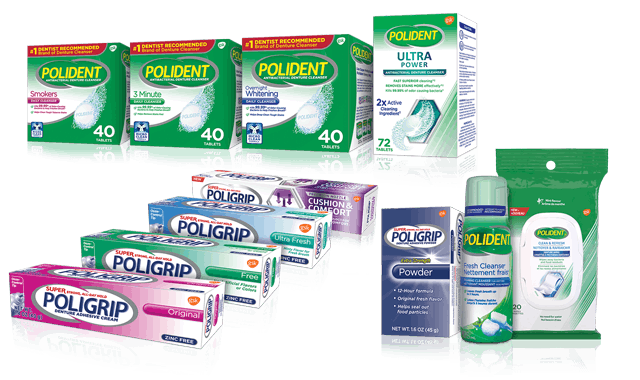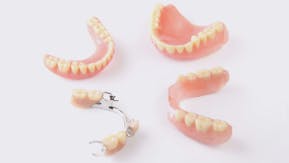Candida and Your Oral Health
Candida, a type of yeast, is a common inhabitant of our bodies, including the mouth. While it's often associated with infections like thrush, candida isn't necessarily a bad thing. In fact, it plays a role in maintaining oral health when it's in balance with other microorganisms.
The Candida Microorganism
Most people have Candida on the mucous membranes of their mouths—it’s normal and not a sign of poor oral health.1 Under normal circumstances, oral Candida coexists harmoniously with a diverse array of microorganisms, including various bacterial species, in a finely tuned equilibrium. Part of this role includes the development of cells that protect against infections from other microbes.1
Can There Be Too Much Candida?
If this helpful microorganism becomes out of balance with the other members of your oral microbiome, it can cause discomfort and infection:
- Oral thrush: Candida overgrowth can lead to oral thrush, or candidiasis, a fungal infection characterized by white patches on the tongue, inner cheeks, and throat. It can cause discomfort, cotton mouth, altered taste perception, and difficulty or pain when swallowing.2
- Denture stomatitis: Denture wearers are susceptible to Candida-related denture stomatitis, which is an inflammation of the oral mucosa beneath dentures. This condition is often caused by poor denture hygiene or ill-fitting dentures.3
What Causes the Overgrowth of Oral Candida
When the oral microbiome is in balance and healthy, it’s called eubiosis. But when something throws off that balance, the oral microbiome is in dysbiosis.1 This can lead to Candida overgrowth. Risks that can lead to Candida overgrowth include2,3,4:
- Weakened immune system: The very young and the very old typically have weakened immune systems. Anything that can cause a weakened immune system can encourage Candida overgrowth and candidiasis. It’s often seen in those who are living with HIV or AIDS and people with cancer. People with diabetes are also at increased risk.
- Antibiotics: Because they change the composition of the oral microbiome, Candida can overgrow during a course of antibiotic treatment. Unfortunately, antibiotics can cause a candidiasis infection to come back after it’s been brought under control.
- Corticosteroids: This can be steroids taken by mouth or by inhaler.
- Dry mouth: Whether caused by a medication, a health condition, or smoking, dry mouth can encourage Candida overgrowth.
- Wearing dentures: Having dentures or a dental appliance adds another component to the oral microbiome—and another place for microbiota to thrive.
Maintaining Candida Balance for Oral Health
To ensure that Candida remains balanced in your oral microbiome, here are some tips:
- Practice good oral hygiene: Regular brushing and flossing help control the growth of Candida and maintain a healthy oral microbiome.2
- Limit sugar intake: Reducing sugar consumption can help prevent Candida overgrowth, as it thrives on sugars and carbohydrates.
- Stay hydrated: Adequate hydration promotes saliva production, which plays a protective role against Candida overgrowth.
- Proper denture care: Denture wearers should clean their dentures regularly and remove them at night to allow the oral tissues to breathe.3 Thankfully, Polident is 10x more effective at killing germs vs. a leading competitor brand.5
Candida is a complex microorganism that can either support or threaten our oral health depending on its balance with other microorganisms. By practicing good oral hygiene and making healthy lifestyle choices, we can maintain a harmonious relationship with Candida.
*C. Albicans after 5 minutes soak in lab tests
Source Citations:
- The human microbiome: The mouth and beyond. JADA, The Journal of the American Dental Association. https://jada.ada.org/article/S0002-8177(23)00074-0/fulltext. Accessed 11/27/2023.
- Candida infections of the mouth, throat, and esophagus. CDC Centers for Disease Control and Prevention. https://www.cdc.gov/candidiasis/site.html. Accessed 11/15/2023.
- Denture stomatitis. Oral Health Foundation. https://www.dentalhealth.org/denture-stomatitis. Accessed 11/15/2023.
- Thrush. MouthHealthy, ADA. https://www.mouthhealthy.org/all-topics-a-z/thrush. Accessed 11/15/2023.
- MD054-23 (2023) ‘Comparison of antimicrobial efficacy between Polident and other denture cleanser formulations using an in-vitro suspension test’. Micro kill report. Haleon data on file, Haleon.






